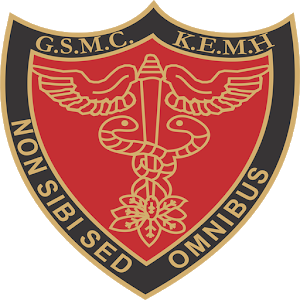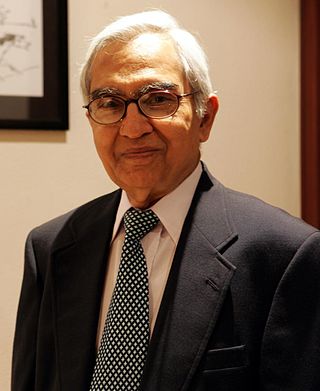Related Research Articles

Hazard analysis and critical control points, or HACCP, is a systematic preventive approach to food safety from biological, chemical, and physical hazards in production processes that can cause the finished product to be unsafe and designs measures to reduce these risks to a safe level. In this manner, HACCP attempts to avoid hazards rather than attempting to inspect finished products for the effects of those hazards. The HACCP system can be used at all stages of a food chain, from food production and preparation processes including packaging, distribution, etc. The Food and Drug Administration (FDA) and the United States Department of Agriculture (USDA) require mandatory HACCP programs for juice and meat as an effective approach to food safety and protecting public health. Meat HACCP systems are regulated by the USDA, while seafood and juice are regulated by the FDA. All other food companies in the United States that are required to register with the FDA under the Public Health Security and Bioterrorism Preparedness and Response Act of 2002, as well as firms outside the US that export food to the US, are transitioning to mandatory hazard analysis and risk-based preventive controls (HARPC) plans.
Pharmacovigilance, also known as drug safety, is the pharmaceutical science relating to the "collection, detection, assessment, monitoring, and prevention" of adverse effects with pharmaceutical products. The etymological roots for the word "pharmacovigilance" are: pharmakon and vigilare. As such, pharmacovigilance heavily focuses on adverse drug reactions (ADR), which are defined as any response to a drug which is noxious and unintended, including lack of efficacy. Medication errors such as overdose, and misuse and abuse of a drug as well as drug exposure during pregnancy and breastfeeding, are also of interest, even without an adverse event, because they may result in an adverse drug reaction.

King Edward Memorial Hospital and Seth Gordhandas Sunderdas Medical College is one of the foremost medical colleges and hospital in India, located in Mumbai, Maharashtra. It was founded in 1926; it is affiliated with Maharashtra University of Health Sciences (MUHS).

The Council for International Organizations of Medical Sciences (CIOMS) is an international non-governmental organization of 40 international, national, and associate member groups representing the biomedical science community. It was jointly established by the World Health Organization (WHO) and United Nations Educational, Scientific and Cultural Organization (UNESCO) in 1949 as a successor to the International Medical Congress that organized 17 conferences from 1867 until the 1913 outbreak of World War One.

Uppsala Monitoring Centre (UMC), located in Uppsala, Sweden, is the field name for the World Health Organization Collaborating Centre for International Drug Monitoring. UMC works by collecting, assessing and communicating information from member countries' national pharmacovigilance centres in regard to the benefits, harm, effectiveness and risks of drugs.
The International Society of Pharmacovigilance (ISoP), previously the European Society of Pharmacovigilance (ESOP), is an international non-profit scientific organisation, which aims to foster pharmacovigilance both scientifically and educationally, and enhance all aspects of the safe and proper use of medicines, in all countries. Its official journal is Drug Safety.
The Indian History and Culture Society (IHCS) was founded in 1977, and operates from the premises of the Indian Archaeological Society in New Delhi. The society's journal History Today has been appearing annually since 2000. The society is now known as The History and Culture Society, and is chaired by Prof. D.P Tiwari, a professor in the Department of Ancient Indian History and Archaeology at the University of Lucknow. The Society aims to promote and organise interdisciplinary studies of Indian history and culture and to provide a common platform for distinguished scholars engaged in Indology, as well as organise various academic journals and conferences.
David John Finney, was a British statistician and Professor Emeritus of Statistics at the University of Edinburgh. He was Director of the Agricultural Research Council's Unit of Statistics from 1954 to 1984 and a former President of the Royal Statistical Society and of the Biometric Society. He was a pioneer in the development of systematic monitoring of drugs for detection of adverse reactions. He turned 100 in January 2017 and died on 12 November 2018 at the age of 101 following a short illness.
The International Society for Pharmacoepidemiology (ISPE) is a society focused on the practice of pharmacoepidemiology.
Pulsus Group is a health informatics and digital marketing company and publisher of scientific, technical, and medical literature. It was formed in 1984, primarily to publish peer-reviewed medical journals. As of 2016, Pulsus published 98 hybrid and full open-access journals, 15 of which had been adopted as the official publications of related medical societies. Pulsus Group also conducts conferences in association with scientific societies.

Ibn Sina Academy of Medieval Medicine and Sciences (IAMMS) is a trust registered under the Indian Trusts Act, 1882. Mohammad Hamid Ansari, former vice-chancellor of Aligarh Muslim University, Aligarh, formally inaugurated it on 21 April 2001. Department of AYUSH, Ministry of Health and Family Welfare, Government of India gave accreditation to the academy in 2004 and promoted it as 'centre of excellence' in 2008. Membership of the academy is open to anyone who has an interest in the academy's activities particularly on history of medicine and history of science. Being a charitable organization, donations to the Academy are also exempted from Income Tax under section 80G of the Income Tax Act 1961.

Syed Ziaur Rahman is a permanent member of 'Board of Trustees' and Chair of the Advisory Council, International Association of Medical Colleges (IAOMC). He also serves as elected secretary of IAOMC and Society of Pharmacovigilance, India (SoPI).

Krishan Chandra Singhal is an Indian pharmacologist and has been serving as founder vice chancellor of NIMS University, Jaipur, India.

Prof. Narinder Kumar Gupta, known as Prof. N. K. Gupta or Prof Narinder Gupta is a research scientist, educator, and engineer. Born 22 August 1942 in Mirpur, Jammu and Kashmir, India, is Professor of Mechanics at the Indian Institute of Technology in Delhi. Gupta works in the area of large deformations of metals and composites at low, medium and high rates of loading. His research stimulates the development of constitutive behaviour of materials, understanding of the basic mechanics of large deformation, design for crashworthiness of road and air vehicles, design for safety in defence applications and in design of metal forming processes.

Dr. Bhim Sen Singhal is the Director of Neurology at Bombay Hospital Institute of Medical Sciences in Mumbai, India.
The International Union for Vacuum Science, Technique, and Applications (IUVSTA) is a union of 35 science and technology national member societies that supports collaboration in vacuum science, technique and applications.
Drug Safety is a peer-reviewed medical journal covering pharmacoepidemiology and pharmacovigilance. It was established in 1986 as Medical Toxicology, and was renamed Medical Toxicology and Adverse Drug Experience in 1987. It obtained its current name in 1990. It is published by Springer Nature under the Adis Reprint, and is the official journal of the International Society of Pharmacovigilance. The editor-in-chief is Nitin Joshi. According to the Journal Citation Reports, the journal has a 2022 impact factor of 4.2.
Alexander Nii Oto Dodoo, is a Ghanaian pharmacist and academic. He is a clinical pharmacologist and a professor at the Centre for Tropical Clinical Pharmacology, University of Ghana Medical School. He is also the director of the World Health Organization (WHO) Collaborating Centre for Advocacy and Training in Pharmacovigilance. He has been serving as the Director-General of Ghana Standards Authority since 2017.
The Pharmacovigilance Programme of India (PvPI) is an Indian government organization which identifies and responds to drug safety problems. Its activities include receiving reports of adverse drug events and taking necessary action to remedy problems. The Central Drugs Standard Control Organisation established the program in July 2010 with All India Institute of Medical Sciences, New Delhi as the National Coordination Centre, which later shifted to Indian Pharmacopoeia Commission in Ghaziabad on 15 April 2011.
Kalyan Singhal is an Indian American engineering and economics scientist, historian of science and technology, and editor. He is the Doris E. and Robert V. McCurdy Distinguished Professor of Management at the Robert G. Merrick School of Business. Singhal has contributed to the fields of innovation, international trade, management sciences, manufacturing operations, operations research, service operations, supply chain management, and sustainable operations. He is the founding editor-in-chief of Production and Operations Management and the founding president of the Production and Operations Management Society. In 2004 Singhal was elected fellow of Institute for Operations Research and the Management Sciences and of the Production and Operations Management Society.